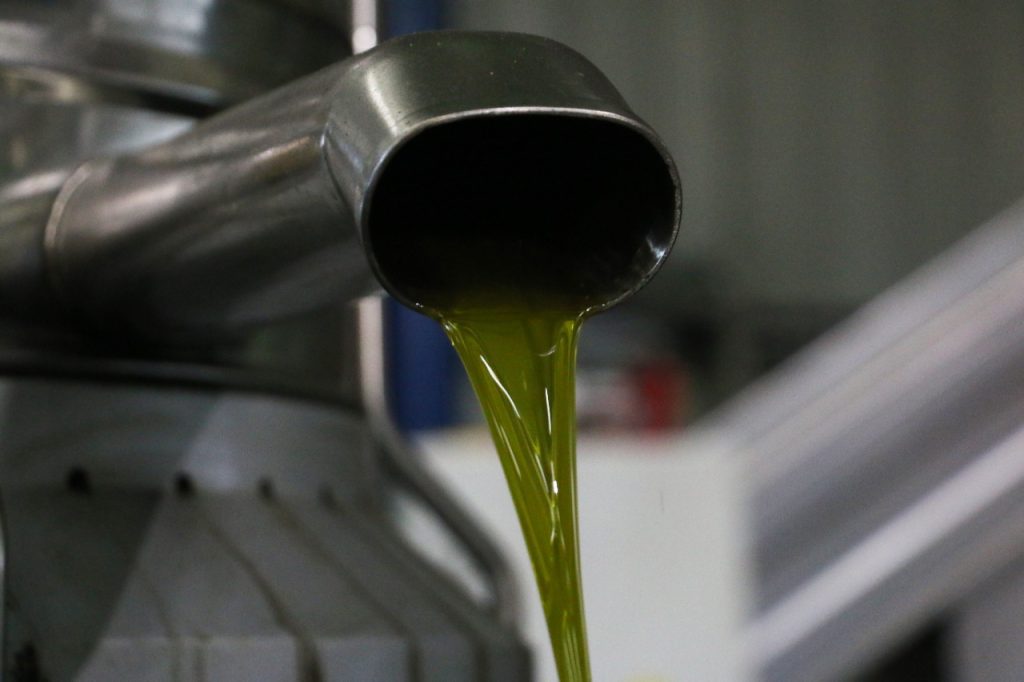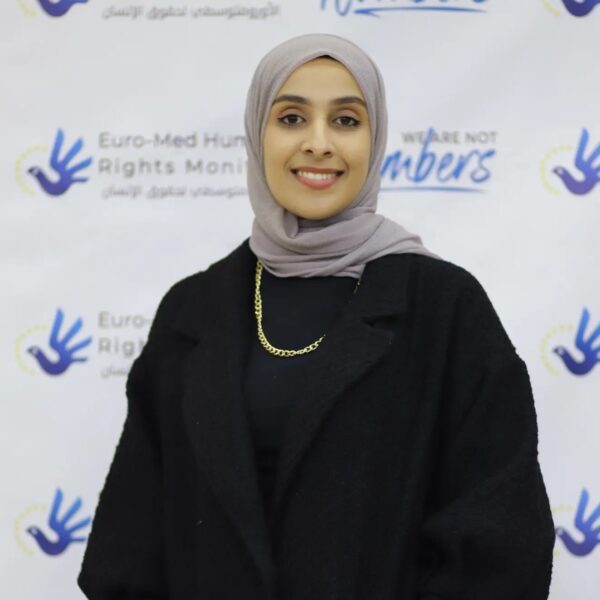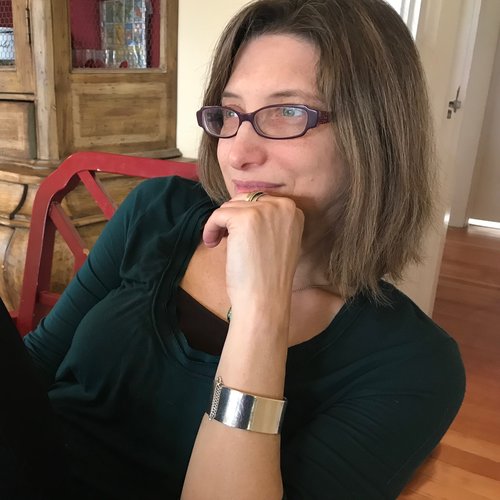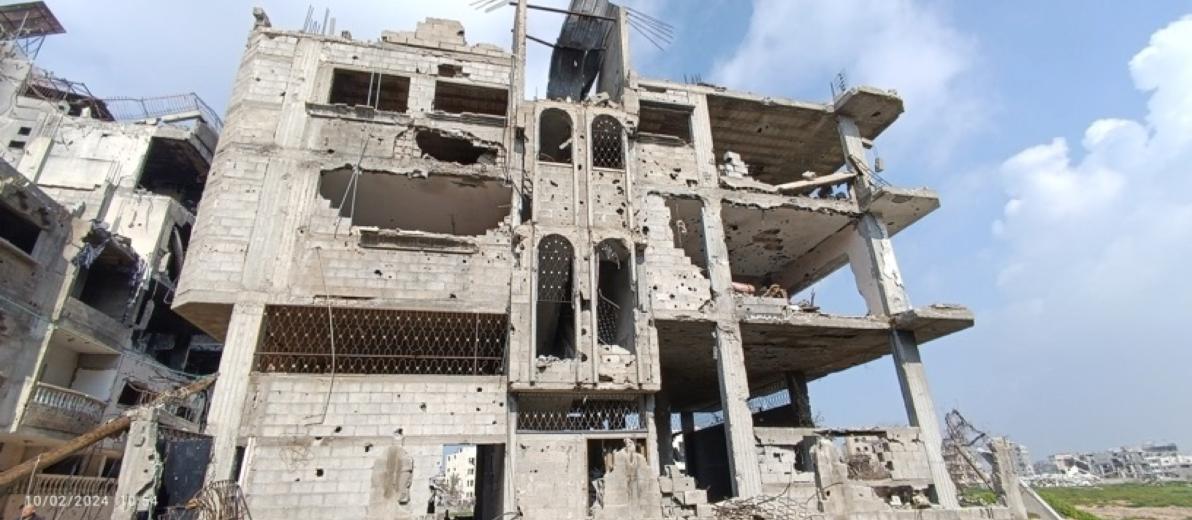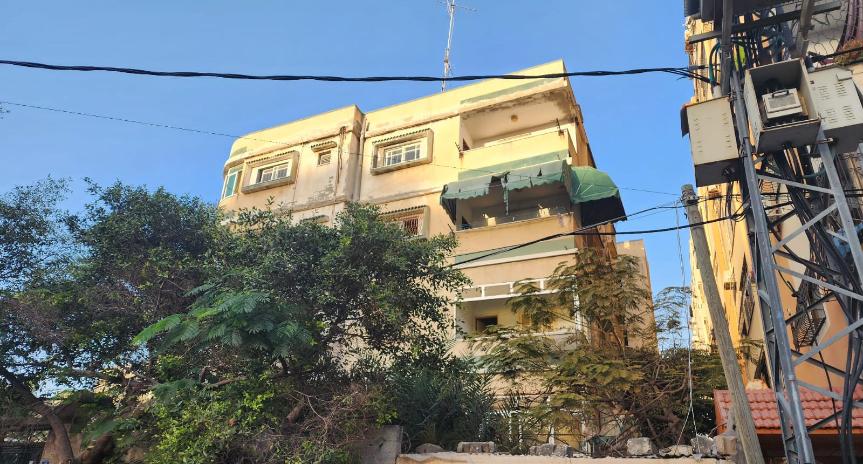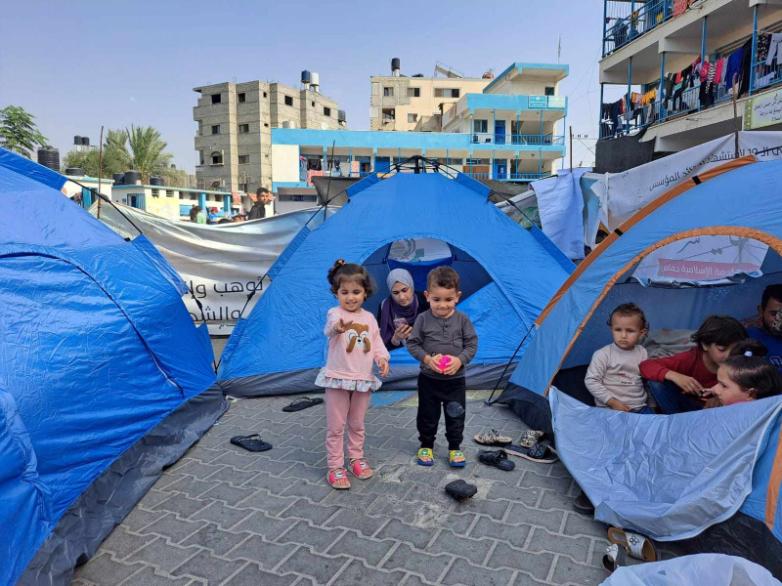The season begins
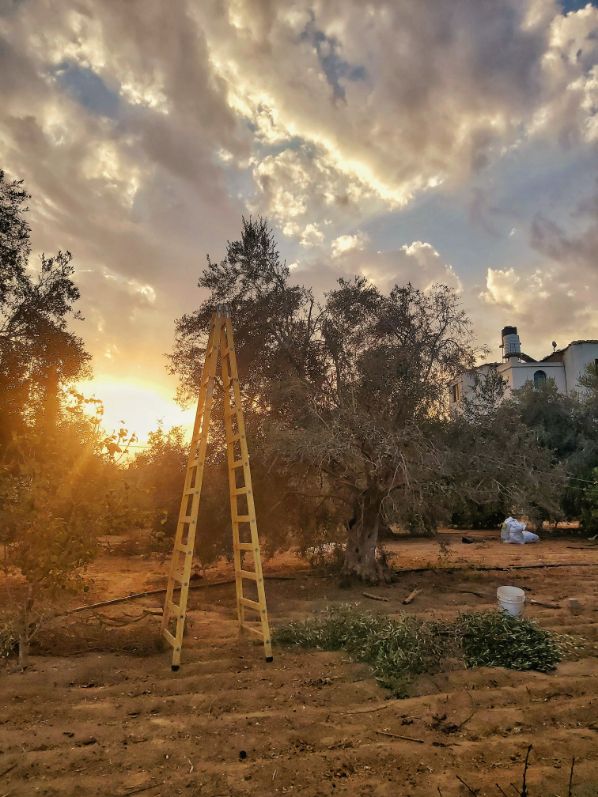
November is not an ordinary month in Palestine.
Young and old hands come together as the olive harvest season begins. We have been eagerly awaiting this time all year.
My family owns two plots bearing olive trees. The one in the garden behind our home holds nearly twenty trees. The other holds three times as many and sits on the eastern border, about a ten-minute walk from our house.
We wait for the sign to start our work: the light “olive rain” that washes the dust off the fruit.
Once that happens, my father and uncle bring out the basic tools from our warehouse, each considered a hand that joins ours in the harvesting process: wooden ladders, plastic bags, sieves, buckets, and yellow boxes.
They place large transparent plastic bags under the trees to keep the olives clean when they fall.
As a child my favorite tool was the wooden ladder. I would hurry back from school, eager to join my family, and rush through my homework so I could start picking the olives. I waited with anticipation for my father to set up and straighten the ladder, so step by step I could become taller than the olive tree, breathe in the fresh air, and look up at the sky. At that moment I would think, “I am close to heaven,” before hearing a light scolding from below: “Hold on tight, Rania!” “Get down now!”
My laughter would rise as I continued to climb, no doubt that if I fell, the many tender hands that picked the olives would stop me from hitting the ground.
Like many Palestinian families, mine gathers early in the morning during the harvest season to pick as many olives as we can before the sun becomes too hot.
At rest time, my mother and aunt bring us cheese sandwiches, tea with mint, a big pot of coffee, and orange cakes. They serve us pastries hot out of the oven on circular trays.
The olives fall like drops of water as we pluck them from the branches or shake them from the trees. Some of our friends use the sieves to separate them from their leaves and clusters, so the olives do not taste sour. Then we store some of each type, green and black, in tightly closed jars mixed with lemons, green pepper, water, and salt.
We take the rest of the green olives to the press.
Competing to see who can collect the most olives makes us work harder. But from time to time, we each sneak some olives from our pail without giving a thought to winning, then run to show my father that we helped him more than the others.
In these exceptional moments, I want to stop time right there on our land in Gaza. But time passes as if we were riding a horse, not feeling it at all.
In the final stage of harvesting, we send the yield to the olive press where workers empty them into a large metal basin, where blown air then separates them from the remaining leaves. They are then fed into the press, where they are cleaned, washed, and slowly kneaded. Finally the long-awaited moment arrives, when the gleaming liquid begins rolling from the long iron machine into designated faucets and, finally, into yellow containers. About twenty of the containers will be transferred to our home for daily use. The oil’s presence is as firm on the dining table as the pillar of a house. At breakfast, it’s dip on the companion of thyme grown in our land whose grains are ground till dinner, it’s drizzled on chickpeas and local beans.
Originally, baked goods such as bread and pastries were not made without oil. The olive is essential to our life and the land here in Palestine.
Left to their own devices, the olive trees are always blessed, steadfast, and loaded with a good harvest. But they haven’t always been left to their own devices.
The aggression against Gaza
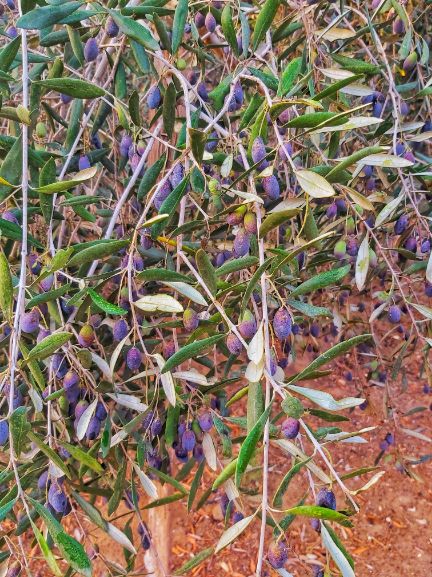
When I was nine years old, we waited as usual for the start of November. But that year was different. Although the land and trees were waiting as usual, the occupier had another plan.
The calm changed, and in December 2008, at the height of harvest season, the occupation began its first aggression against the Gaza Strip. The Israeli drones, zanana, spread suddenly and densely, covering the sky of Gaza. The buzzing made it difficult to hear myself think. Heavy shelling began, from where I did not know, and trying to escape the intensity of the sound by covering my ears was useless.
All we could do was sit and wait anxiously for the current attack to stop, our hearts pounding. No one knew what the coming moments would bring. When the sun went down, we said to each other, “The night has come“ in a voice completely stripped of reassurance. We could get no rest, no sleep. As the night comes for us in Gaza at the time of aggression, it is another aggression. I struggled to sleep, knowing the house could collapse on me at any time, knowing I could vanish under the rubble.
All this is a huge burden on a child who is nine years old and who still has toys in her hand. But in Gaza, the child and the adult are equal in these moments, there is no difference; they both have to think about survival only and nothing else.
We all had to face life under occupation and aggression. When the sun rose, we knew we needed to find a safe place. At first, my thoughts turned to my red fabric toy box. I wanted to bring it with us.
But even as a child I quickly realized there was no time to linger on thoughts unrelated to our survival. I stuck to my mother’s every step, as I had at the beginning of the aggression, when, to avoid Israeli shelling, my mother and I ran for cover into the house of a stranger, who’d opened his big blue door for us, inviting us inside.
My family divided itself into three different houses. My father didn’t say it, but I knew the reason for our separation: if one of us goes, others will survive. We will not all die together.
We began sleeping apart and coming back together in the mornings to tell one another what we saw and how we survived the bombings.
Three weeks passed and we were still alive.
But the days of aggression are not counted by hours and minutes; days or weeks; we count them by fears, losses, the places that are bombed next to us, the souls that are lost, the bodies that remain without a soul, the remnants of hopes, the desperate eyes that anxiously watch loved ones.
My father looked at us anxiously when he said, “The land in the east was swept away with all the trees on it, along with our small house.” I imagine he was thinking about all his efforts over the years. Our land meant everything to him.
At that moment no one knew how to respond. What I wanted was not to hear anything about what had happened. I wanted to flee. But with the ongoing aggression, going outside meant risking death.
Did our destination change?
After the black cloud of aggression was gone, the impact remained.
No tree or stone had survived the bulldozers. The place where we played, walked, picked trees, and came back to bearing fruits no longer existed.
We saw only backfill, stones, and some intertwined tree roots still holding on.
Perhaps the occupiers believed that bulldozing our land would rid it of our steadfastness, along with an important witness to the entitlement of our ownership of this Palestinian land.
However, the owner of the land was still alive and had an entirely contradictory opinion. We came back determined to begin again. That summer, we planted new roots. And by November, the olive trees stood again, loaded and waiting for the real owner of the land to embrace it.
